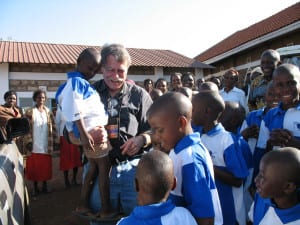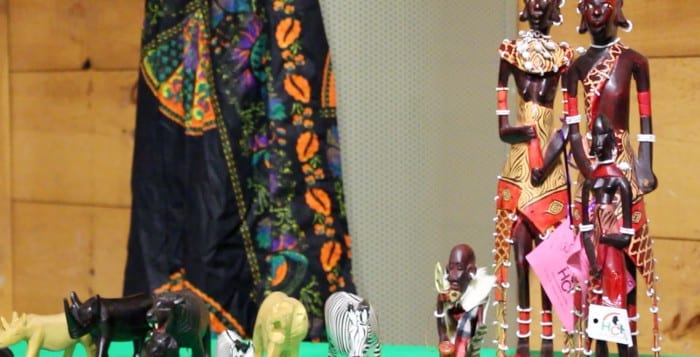With the help of Hope Children’s Fund, the children of Joseph Kirima Rwito’s orphanage in Meru, Kenya, have never had to wonder where they were getting their next meal or resting their head in the last 10 years.
On Saturday, the Hope Children’s Fund board of directors celebrated the 10th anniversary of its involvement in Rwito’s orphanage at the Heritage Trust Center in Mount Sinai. The orphanage, called The Jerusha Mwiraria Hope Children’s Home, provides food, shelter and education for orphaned Kenyan children and those who are struggling to get by despite living with relatives. For these children, education is key to a brighter future, and Larry Hohler, president of Hope Children’s Fund, and his team, are doing what they can to help.
In addition to celebrating another year, the organization aimed to raise enough money to help these kids go to high school, or other higher educational institutions. The Hope Children’s Fund got involved with the orphanage after Rwito saw countless children on the streets.
In the early 2000s, the AIDS epidemic in Kenya left many children without parents or relatives to care for them. According to Hohler, of Port Jefferson, Rwito took 45 of these children and started a feeding program, but after seeing the children return to their life of poverty, Rwito wanted to do more.

He asked Hohler to help create the orphanage, and now, upwards of 80 children of various ages reside at, or go to the orphanage. Hohler said the orphanage is so successful that Kenyan authorities and other community members bring kids in need there. While part of the goal is to help these children, Hohler said funding additional children isn’t easy.
“The problem is that they just leave them here, and they don’t help us pay for the upkeep,” Hohler said.
Despite this, the organization and the orphanage received help from Shoreham-Wading River High School students in the past. According to Hohler, they donated countless books to the orphanage for the kids to read and enjoy.
Hope Children’s Fund board of directors member Nancy Rose said the high school students used to visit the orphanage, but stopped. Rose was unsure why they stopped visiting, but said some kids stay in touch with the children they met at the orphanage.
Funding doesn’t just help feed the kids, it helps send them to school. Once the children reach eighth grade, they must take a test to determine if they can move up to high school. Those who fail the test must retake it to advance. While paying to get into high school is another alternative, the majority of these children do not have the finances to afford high school. It’s up to the orphanage and the Hope Children’s Fund to provide that funding once the child passes the test.
According to Rose, who is a mentor to several of the children, the institute hoped to raise $7,000 to $8,000 to help the kids who are preparing to take the exam. Although Rose is unsure if the organization will reach its goal, it still aims to do what it can.
“If they study hard and they pass the test, you just don’t want to tell them ‘I’m sorry, you can’t go, because we can’t come up with the money,’” Rose said.
Rose and her husband, Phil, started helping the children in the orphanage 10 years ago, and found out about the Hope Children’s Fund through their daughter. According to Phil Rose, those who mentor children at the orphanage are responsible for paying one dollar daily, which goes toward the children they mentor. The money raised during Saturday’s event also went toward funding the children’s education.
Those who didn’t want to purchase merchandise at the event could make a donation or use iGift to help the children in Rwito’s orphanage. iGift allows people to purchase goods from participating stores and donate at the same time. A small percentage of the money from that purchase goes toward helping the orphanage.
“I know a lot of people say there’s a lot of children in our country, but this is a good effort and a lot of people spent a lot of time to make it work,” Phil Rose said.
His wife added that, in addition to taking these kids off the street and providing them with a better chance to succeed in their lives, the organization’s goal is for the orphanage to be self-sustainable over time.
“When they do finish with school, they’re expected to come back and give a certain percentage of what they earned to the home itself so that the next kid can go [to school],” Nancy Rose said. “The whole idea is not about a bunch of American do-gooders coming in. It’s about helping them be sustainable and giving them an education, and celebrating their own country and their traditions.”





